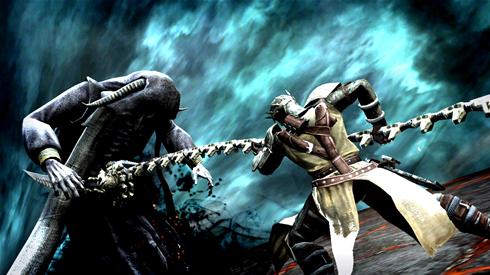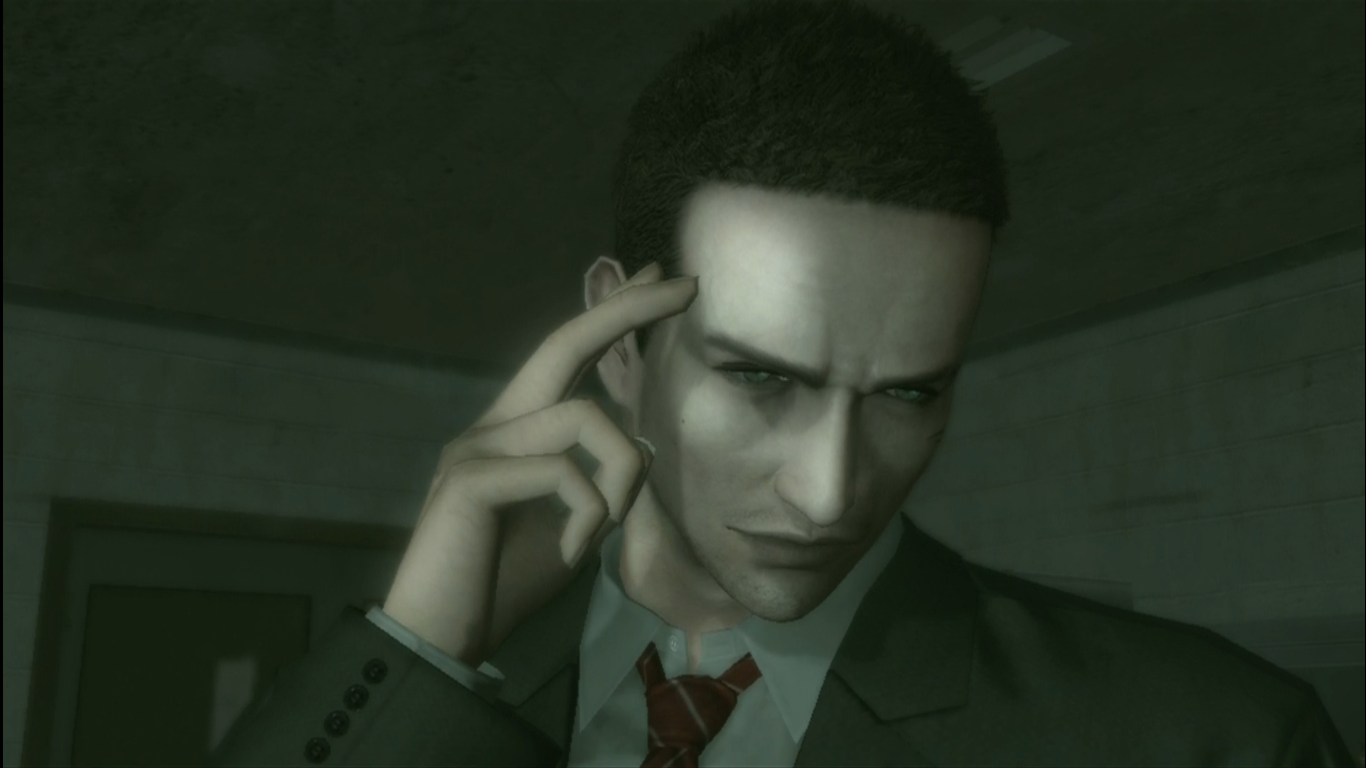
Ninja Senators; Only the Vice President Can See Them…
With all the recent press over the Supreme Court ruling of Brown vs. the Entertainment Merchants Association, another bill trying to make its way through the Senate is Senate Bill S.978.
If you don't have time to read through all the political mumbo jumbo, here's the main piece of the bill that sums it all up, quoted verbatim:
"…the offense consists of 10 or more public performances by electronic means, during any 180-day period, of 1 or more copyrighted works; …"
And also **drum roll**:
"...shall be imprisoned not more than 5 years, fined in the amount set forth in this title, or both…"
Let's use an example. There is a peripheral that you can buy called the Pinnacle Dazzle Video Recorder, that allows you to record what is happening on your TV screen, and with a bit of snazzy cabling, you can record them onto your PC, and post them to websites like YouTube. This is very popular for those who love to post video walkthroughs of video games, or love to brag about their killstreaks and back them up with videos of their performances.
If this law passes, that would mean that if you post videos of such nature more than 10 times in a 180-day time period, you could suffer jail time of up to 5 years. This doesn't apply to just video games, this could also apply to:
-Music
-Movies
-Television shows
-Music concert footage
-Any form of media that is copyrighted, really
This means no more fan footage of your obsession with Justin Bieber. No more "Best of Ross from Friends." No more of you and your buddies singing a cover song of Duran Duran's "Hungry Like the Wolf" . You could not only get sued, you could suffer fines of up to or exceeding $5,000, or jail time.
This begs the question by gamers and consumers alike; What is it that you are really buying?
Video games themselves are copyrighted, meaning that you are not allowed to reproduce the code featured in the game, nor are you allowed to burn a copy of the game and sell it to others (well, to distribute it period). There is debate over whether it is technically legal to sell the game to places like Gamestop, with the intent of reselling it, but that is beyond the topic presently at hand.
In most cases, you are not even allowed to reproduce (with intent to sell for profit) the stories or mythology in your own work (books, movies, comics, etc.), or utilize characters from those video games in your own work, with intent to sell. This has never been debated, as the video game publishers and developers own the Intellectual Property (commonly called "IP") of those games.
What you are paying that money for is for Digital Rights Management, or DRM for short. This is a way companies and developers can help curb piracy of their products. In many cases this is hard to police and enforce, so developers have implemented ways to help fight piracy, for example Ubisoft's U-Play online system. Some Ubisoft games like Assassin's Creed could only be played while fully connected to the internet, and connected to Ubisoft's U-Play system.

Piracy has become a rampant problem throughout all forms of media, not just in video games. This has resulted in profits that have been potentially lost due of piracy. Dante's Inferno was the most pirated game of 2010, with reports of 1,280,000 pirated copies, a potential loss of over $60,000,000 for EA and Visceral Games (publisher and developer respectively).
From an economic and accounting standpoint, this bill awaiting approval from the Senate could be seen as a potential victory for publishers and developers everywhere. This bill can be one more fight to bring to the table against pirates that try to steal games made by hard working people, forcing more people to buy new. Not only does this bill target those that pirate copyrighted video games, however, it targets all consumers as well.

When we define the term "copyright," we look to the U.S. Copyright Office's definition of the term, which is as follows:
"Section 106 of the 1976 Copyright Act generally gives the owner of copyright the exclusive right to do and to authorize others to do the following:
• To reproduce the work in copies or phonorecords;
• To reproduce the work in copies or phonorecords;
• To reproduce the work in copies or phonorecords;
-To reproduce the work in copies or phonorecords;
-To prepare derivative works based upon the work;
-To distribute copies or phonorecords of the work to the public by sale or other transfer of ownership, or by rental, lease, or lending;
-To perform the work publicly, in the case of literary, musical, dramatic, and choreographic works, pantomimes, and motion pictures and other audio visual works;
-To display the work publicly, in the case of literary, musical, dramatic, and choreographic works, pantomimes, and pictorial, graphic, or sculptural works, including the individual images of a motion picture or other audio visual work; and
-In the case of sound recordings,* to perform the work publicly by means of a digital audio transmission."
Unfortunately it is right there in print, especially the bolded passage; posting copywritten work on YouTube is illegal. YouTube tells you that before you post ANYTHING on their website, and even tell you what it considered copywritten material
here in their help section. Their punishments could result in removal of the media, or removal from using the website period.
Unless you have expressed permission, you cannot post footage of your pwning sessions on Black Ops onto YouTube. Nor can you post your walkthrough of Portal 2's toughest challenges.
It remains to be seen how this bill could affect websites like YouTube, GameFAQs, or even sites like our very own Bitmob! With the laws on copywritten material having been around since the 1970s, this bill could potentially push the fight even further against piracy and jail people as a result, like the Napster tirade from the late 90s (thanks Lars Ulrich!!…still love your band though…).
I am all in favor of fighting piracy,
illegal downloading, and illegal file sharing. I pay full price for my games (I never buy used games either), and I believe that others should as well. However, taking this fight one step further and making it a felony to post video walkthroughs of Deadly Premonition, or posting video of the ending to Final Fantasy XIII (I don't know anyone besides me who beat it all the way through) is taking things way too far in my opinion.
I believe that the developers and publishers that can benefit from this bill need to stand up and speak out against such an action. Such a law could cause harm in marketing efforts, creative fan-fiction, video game journalism, and ESPECIALLY to websites like YouTube and Bitmob. Despite the fact that yes, these kinds of action are indeed illegal according to law, maybe with the rampant accelerating technology we have had happen in the past few years, that many of these laws need to be changed or altered.
I'm sure in the 1970s, no one could have imagined Facebook and YouTube, much less the Internet.
If you disagree with this bill, you are free to express your concern and voice against this action here at
Demand Progress.
choreographiworks, pantomimeand motion pictures and other audio
visual works;
(title 17, U. S. Code) to the authors of “original works of authorship,” including
literary, dramatic, musical, artistic, and certain other intellectual works. This
protection is available to both published and unpublished works. Section 106
of the 1976 Copyright Act generally gives the owner of copyright the exclusive
right to do and to authorize others to do the following:
• To reproduce the work in copies or phonorecords;
• To prepare derivative works based upon the work;
• To distribute copies or phonorecords of the work to the public by sale or
other transfer of ownership, or by rental, lease, or lending;
• To perform the work publicly, in the case of literary, musical, dramatic, and
choreographic works, pantomimes, and motion pictures and other audio
visual works;
• To display the work publicly, in the case of literary, musical, dramatic, and
choreographic works, pantomimes, and pictorial, graphic, or sculptural
works, includ
(title 17, U. S. Code) to the authors of “original works of authorship,” including
literary, dramatic, musical, artistic, and certain other intellectual works. This
protection is available to both published and unpublished works. Section 106
of the 1976 Copyright Act generally gives the owner of copyright the exclusive
right to do and to authorize others to do the following:
• To reproduce the work in copies or phonorecords;
• To prepare derivative works based upon the work;
• To distribute copies or phonorecords of the work to the public by sale or
other transfer of ownership, or by rental, lease, or lending;
• To perform the work publicly, in the case of literary, musical, dramatic, and
choreographic works, pantomimes, and motion pictures and other audio
visual works;
• To display the work publicly, in the case of literary, musical, dramatic, and
choreographic works, pantomimes, and pictorial, graphic, or sculptural
works, including the individual images of a motion picture or other audio
visual work; and
• In the case of sound recordings,* to perform the work publicly by means of
a digital audio transmission.
(title 17, U. S. Code) to the authors of “original works of authorship,” including
literary, dramatic, musical, artistic, and certain other intellectual works. This
protection is available to both published and unpublished works. Section 106
of the 1976 Copyright Act generally gives the owner of copyright the exclusive
right to do and to authorize others to do the following:
• To reproduce the work in copies or phonorecords;
• To prepare derivative works based upon the work;
• To distribute copies or phonorecords of the work to the public by sale or
other transfer of ownership, or by rental, lease, or lending;
• To perform the work publicly, in the case of literary, musical, dramatic, and
choreographic works, pantomimes, and motion pictures and other audio
visual works;
• To display the work publicly, in the case of literary, musical, dramatic, and
choreographic works, pantomimes, and pictorial, graphic, or sculptural
works, including the individual images of a motion picture or other audio
visual work; and
• In the case of sound recordings,* to perform the work publicly by means of
a digital audio transmission.




